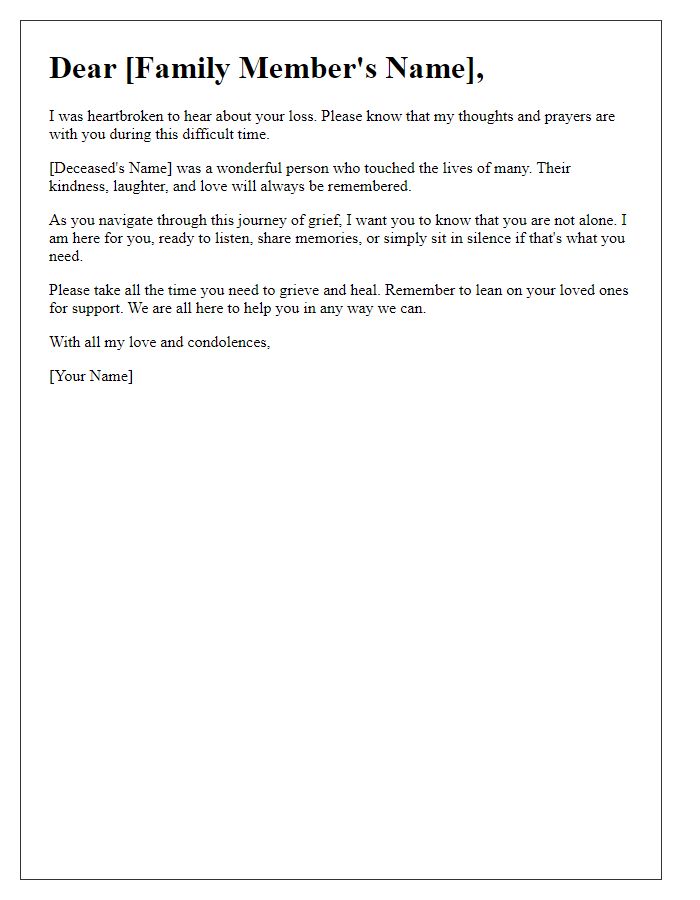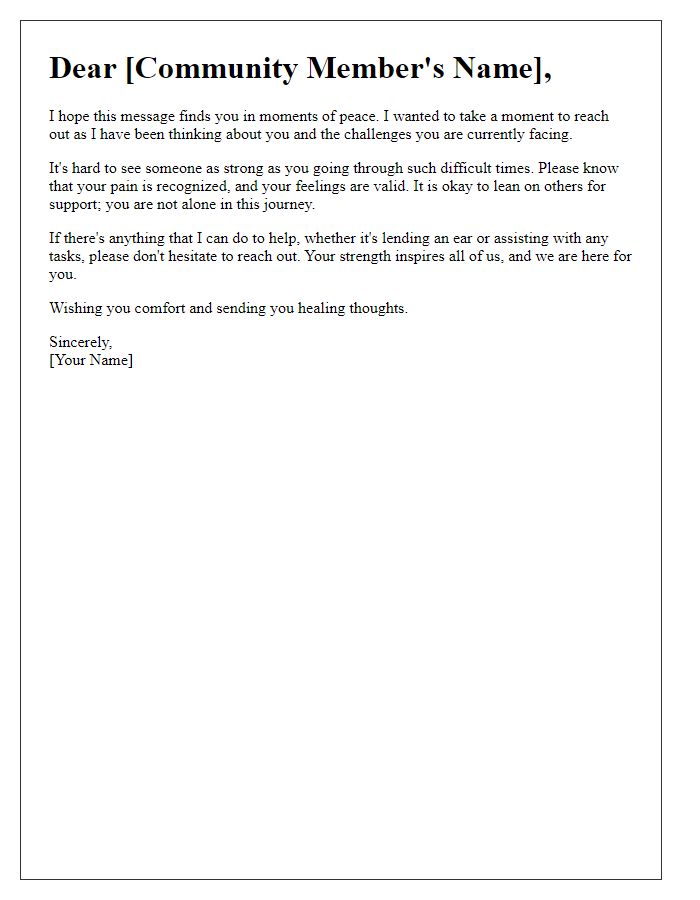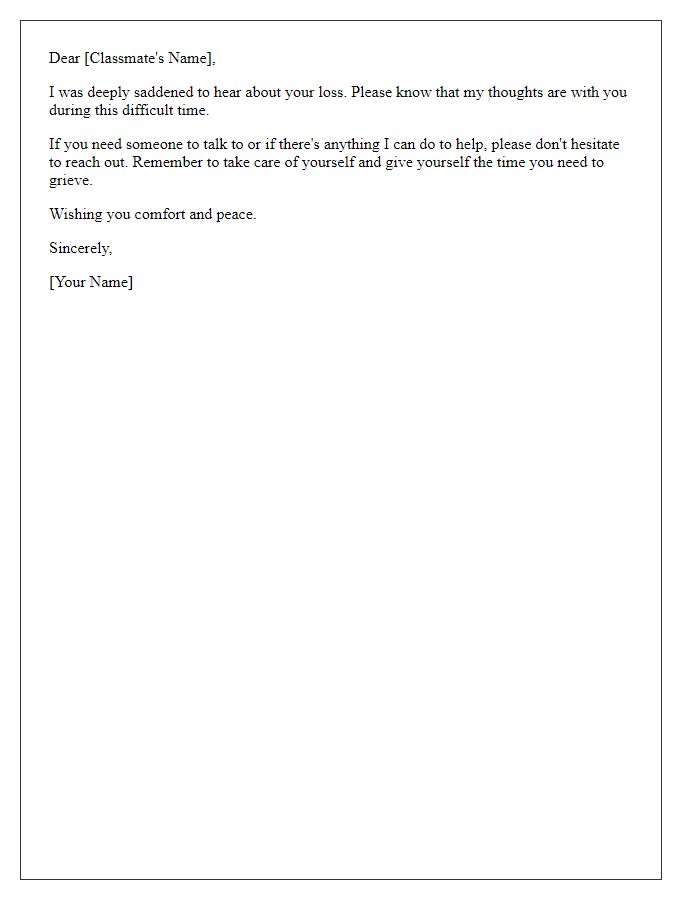Losing someone you love is never easy, and expressing your feelings during such a difficult time can be challenging. It's important to communicate your support and understanding to those who are grieving, while also respecting their need for space. In this article, we'll explore how to convey your condolences in a heartfelt and compassionate manner without using religious references. Keep reading to discover thoughtful letter templates that can help you express your sympathy in a personal and meaningful way.

Acknowledgment of the Loss
In this difficult time, the profound sadness stemming from the loss of [Name], a cherished member of the community in [Location], is deeply felt. The impact of [his/her/their] absence resonates within the hearts of all who knew [him/her/them]. [Name's] remarkable contributions to [specific achievement or role, e.g., local charity work, school teaching, etc.] will forever be remembered. While words may fall short, the legacy [he/she/they] leaves behind continues to inspire. Support systems established among family, friends, and colleagues in [specific community or group] will be essential as we navigate through this period of grief.
Expression of Sympathy and Support
The unexpected passing of an loved one can create profound sadness and displacement for those left behind. Memories shared in places such as family gatherings and vacation spots may now evoke bittersweet emotions. Offering heartfelt support during this challenging time is vital; actions such as preparing meals or assisting with daily tasks can provide tangible comfort. Encouraging moments of reflection can also foster healing, while conversations about cherished experiences allow for the remembrance of joy amidst sorrow. It's important to remind the bereaved that they are not alone in this grief, as friends and family stand ready to lend an understanding ear or a helping hand.
Personal Memories or Shared Experiences
Sharing personal memories can provide comfort during difficult times. Reminiscing about cherished moments spent together can alleviate grief. For instance, recalling joyful gatherings or heartfelt conversations reinforces connections, highlighting the impact of the departed individual on those around them. Highlighting specific traits, such as kindness or humor, can evoke smiles amidst sadness. Acknowledging shared experiences, like unforgettable vacations or milestones, creates a lasting tribute to the person's life. These reflections allow loved ones to honor the legacy left behind, fostering feelings of unity and support among friends and family during the healing process.
Offer of Practical Assistance
Experiencing the loss of a loved one is profoundly impactful, leaving individuals and families navigating through a sea of emotions. During this challenging time, practical assistance can be invaluable to help alleviate immediate burdens. Simple tasks such as preparing meals, running errands, or assisting with childcare can foster a support system that feels comforting. Whether it involves visiting local grocery stores in your neighborhood or arranging for a cleaning service, each act of kindness can ease the daily strain faced in moments of grief. Furthermore, offering companionship through conversation can provide a sense of normalcy amidst the chaos, allowing space to share memories or simply to be present. Such gestures, rooted in understanding and empathy, can significantly contribute to emotional healing while honoring the memory of the departed.
Encouragement of Open Communication
Open communication serves as a vital support system during times of loss. Engaging in conversations about feelings, memories, and experiences with loved ones can provide solace. Sharing stories about the departed individual fosters connection and healing, allowing each person to express emotions freely. Creating a safe space for dialogue facilitates understanding and emotional processing, enabling friends and family to navigate their grief together. Encouragement to talk about the impact of loss promotes emotional resilience and strengthens relationships in the mourning process. Remember, expressing thoughts and feelings can ease burdens and remind us we are not alone as we journey through this challenging time.













Comments